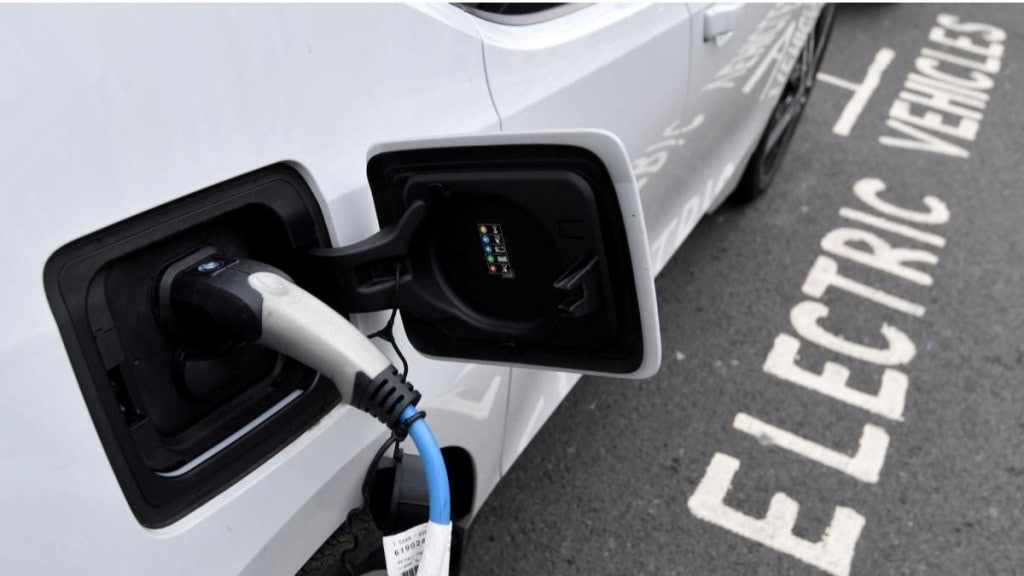With a massive 5.5 million workforce, IT companies are increasingly using electric vehicles (EVs) to provide commute to their employees. With companies now mandating employees to come to office, the percentage of EVs in the total mix of vehicles used for transporting employees is set to increase to 8% by 2025.
This week, Tech Mahindra introduced green transportation for employees in its Noida campus. The initiative aims to strengthen the company’s zero-carbon footprint ambition and improve fuel economy while reducing harmful emissions and noise pollution.
Harshvendra Soin, global chief people officer and head, marketing, Tech Mahindra, said, “Embracing a zero-carbon footprint is our commitment to sustainability, and in this direction, introducing EVs for our employees is a significant step towards a greener future. This transition aligns with our core values of responsible corporate citizenship and demonstrates our dedication to building a sustainable tomorrow for future generations.”
In May this year, Accenture introduced EVs in its transportation fleet to enable climate-smart travel options for its people across four locations — Bengaluru, Mumbai, Hyderabad and the NCR. Over 200 EVs were added to the Accenture fleet in India, helping the company further reduce its carbon footprint, the company had said.
Wipro, in its recent annual report of FY23, said, “By 2030, we plan to use 100% renewable energy for our electricity requirements in India, and progress towards 100% electric mobility for our transport operations.”
It added, “As the situation of the pandemic improves and things return to normalcy, we have observed an increase in business travel and for that reason, we are looking to transition to low-emission travel choices and policies. We have taken steps that would optimise and make our travel more sustainable for employees (buses, commuter trains) and carpooling.”
The Bengaluru based IT giant added, “We are the first major Indian business to join EV100, a global initiative by the Climate Group, in our commitment to transition our global fleet to EVs by 2030. At present, we have EVs as part of our fleet in a few cities (Bengaluru and Hyderabad).”
Wipro also highlighted the challenges in scaling up EVs due to the lack of widespread availability of charging infrastructure and battery capacity. “EV fleet deployment has dropped from an average of 8% (FY22) to 5% (FY23). Our CNG fleet deployment has increased from an average of 25% (FY22) to 38% (FY23). We have also taken additional steps to reduce emissions by increasing cab occupancy.”
Gaurav Vasu, founder, UnearthInsight, said, “Today about 5℅ of cabs used to transport IT employees are EVs. This was less than 2℅ pre-covid. The covid disruption and work-from-home mode acted against mainstreaming of EVs. Now that employees are coming back to office, this is rising. In our estimate, this will increase to 8℅ in the next two years.”
Vasu added, “There are few specialised companies like O2 mobility and Lithium who provide a mix of petrol/diesel and EV cabs services to over 25 plus IT services companies for their employees’ commute.”
Similarly, HCLTech had a successful pilot of transport sustainability through EVs in Bengaluru and Hyderabad in FY23. While not mentioning any number, the company said that in FY24, it plans to transition part of its transport fleet to EVs as a part of sustainability initiatives.
LTIMindtree, another Bengaluru-based IT company, said in its annual report that it has provided EV charging station in few of its facilities to encourage employees to adopt EVs.
Rahul Pravindra, CEO, O2 Mobility, a startup that provides cab services to IT companies, said, “We are also seeing many European GCCs making transition to 100% EV fleet. But there are many challenges for this endeavour. Today if we go to servicing centres, they take about a week or two to hand over the EVs back to us.”
He added, “For volume segment, today India is primarily reliant on one viable product, Tata Tigor, while Mahindra’s E-Verito has been discontinued. To truly scale up 4-wheeler EV volumes, we need 5-6 competitive products priced around Rs 10 lakh. High costs limit their widespread adoption in the commercial segment, especially for corporate transport.”
